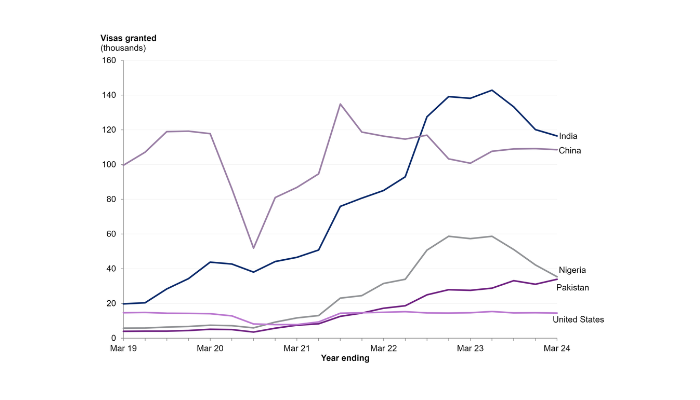Severe Mental Illness And Violence: Challenging The "Monster" Stereotype In Academic Discourse

Table of Contents
The Statistical Reality: Examining the Prevalence of Violence in Individuals with Severe Mental Illness
The simplistic correlation between severe mental illness and violence is a gross oversimplification. While some studies indicate a slightly elevated risk of violence in specific populations experiencing untreated psychosis, the vast majority of individuals with severe mental illnesses are not violent. The reality is far more nuanced than the stereotype suggests.
- Studies consistently show that the risk of violence associated with severe mental illness is relatively small, and often significantly overestimated by the general public.
- The increased risk, when present, is often linked to specific untreated conditions like psychosis, and even then, the correlation is weak.
- The link between severe mental illness and violence is frequently confounded by other significant factors, such as substance abuse, poverty, and childhood trauma. Ignoring these co-occurring factors creates a misleading narrative.
- Focusing solely on the correlation without acknowledging these confounding variables leads to inaccurate and harmful conclusions about individuals living with severe mental illnesses.
Understanding the complexities surrounding this issue requires moving beyond simplistic correlations and focusing on a holistic understanding of individual circumstances.
Understanding the Contributing Factors: Beyond Mental Illness
Violence is a multifaceted issue with roots far beyond the presence of a mental illness diagnosis. Attributing violence solely to severe mental illness ignores the crucial role of other contributing factors.
- Substance Abuse: Co-occurring substance use disorders significantly increase the risk of violence, regardless of the presence of mental illness. Addiction can exacerbate existing vulnerabilities and impair judgment.
- Social Determinants of Health: Poverty, lack of access to healthcare, childhood trauma, and social exclusion are all strongly linked to increased rates of violence. These societal factors create environments conducive to aggression and limit access to resources that could help prevent violence.
- Untreated Mental Health Conditions: While the presence of a severe mental illness itself doesn't directly cause violence, untreated conditions can exacerbate existing vulnerabilities, increasing the potential for violent behavior. Access to timely and appropriate care is crucial in mitigating risk.
Addressing violence effectively requires holistic approaches that consider the complex interplay of these factors and promote comprehensive interventions.
The Impact of Stigma and Discrimination
Societal stigma surrounding severe mental illness indirectly contributes to violence. Marginalization, discrimination, and lack of access to care create significant stressors and social isolation. This exclusion can lead to increased feelings of frustration, anger, and hopelessness, potentially increasing the risk of violent behavior as a maladaptive coping mechanism. The stigma itself is a significant barrier to seeking help and receiving appropriate support.
Reframing the Narrative: Responsible Reporting and Academic Discourse
Media portrayals and academic research have a significant role in shaping public perception. Sensationalized reporting that focuses solely on instances of violence committed by individuals with mental illnesses reinforces the "monster" stereotype. Academic discourse must move beyond simplistic correlations and embrace a nuanced understanding of the complex interplay of factors contributing to violence.
- Responsible reporting should focus on the individual's experiences, using person-first language and avoiding stigmatizing labels.
- Academic research should prioritize comprehensive methodologies that account for confounding variables and avoid perpetuating harmful stereotypes.
- Emphasis should be placed on the importance of early intervention, access to treatment, and community support for individuals with severe mental illnesses.
Pathways to Prevention and Intervention: A Focus on Support and Treatment
Preventing violence requires a multi-pronged approach focusing on early intervention and comprehensive care.
- Access to Mental Healthcare Services: Early detection and intervention are crucial. Expanding access to quality mental healthcare, including preventative services, is vital.
- Substance Abuse Treatment Programs: Integrated treatment for co-occurring substance use disorders and mental illnesses is critical in reducing the risk of violence.
- Social Support Networks: Strong social support systems provide crucial buffers against stress and isolation, decreasing the likelihood of violent behavior.
- Trauma-Informed Care: Recognizing and addressing the impact of trauma is crucial, as trauma can significantly increase the risk of violence.
Successful community-based programs demonstrate the effectiveness of these strategies in reducing violence rates among vulnerable populations.
Moving Beyond the Stereotype: A Call for Compassionate Understanding of Severe Mental Illness and Violence
The relationship between severe mental illness and violence is complex and far more nuanced than the pervasive "monster" stereotype suggests. Challenging this harmful stereotype requires responsible reporting, evidence-based research, and a compassionate understanding of the individuals affected. Increased investment in mental healthcare, social support programs, and research is crucial to developing effective strategies for prevention and intervention. Let's move beyond harmful generalizations and work towards a future where individuals with severe mental illnesses receive the support and understanding they deserve. Learn more about severe mental illness and violence and become an advocate for change.

Featured Posts
-
 France Poland Friendship Treaty Macron Announces Signing Next Month
May 10, 2025
France Poland Friendship Treaty Macron Announces Signing Next Month
May 10, 2025 -
 Elon Musks Billions Vanish Analysis Of Recent Net Worth Decrease
May 10, 2025
Elon Musks Billions Vanish Analysis Of Recent Net Worth Decrease
May 10, 2025 -
 Aoc Delivers Brutal Fact Check To Jeanine Pirros Claims
May 10, 2025
Aoc Delivers Brutal Fact Check To Jeanine Pirros Claims
May 10, 2025 -
 La Fires Fuel Housing Crisis Landlord Price Gouging Claims Investigated
May 10, 2025
La Fires Fuel Housing Crisis Landlord Price Gouging Claims Investigated
May 10, 2025 -
 Analysis Uks Potential Restrictions On Student Visas And Asylum Claims
May 10, 2025
Analysis Uks Potential Restrictions On Student Visas And Asylum Claims
May 10, 2025
